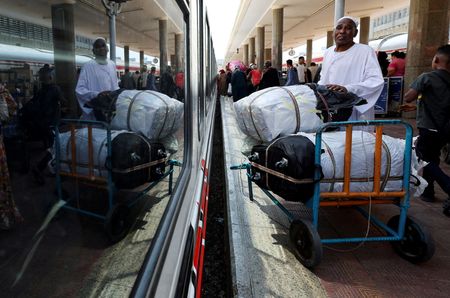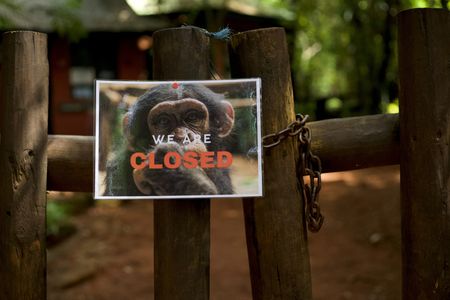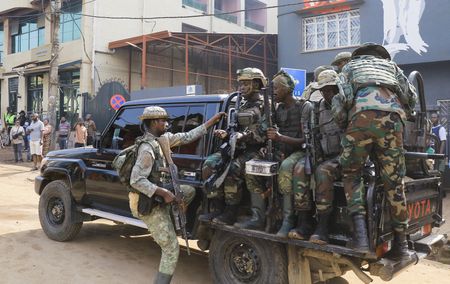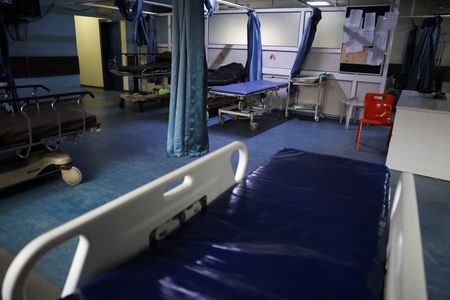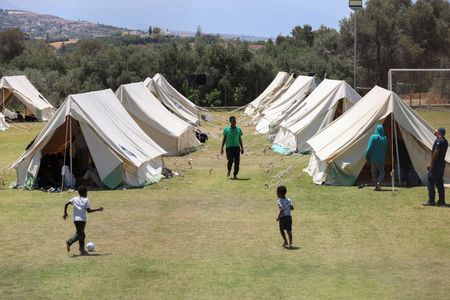By Nafisa Eltahir
CAIRO/DUBAI (Reuters) -Sudanese paramilitaries are forming a parallel government to the one controlled by the country’s army, pushing Sudan further towards de facto division, political analysts say.
After more than two years of war that has caused waves of ethnic killings, famine and massive displacement, Sudan’s army and the paramilitary Rapid Support Forces (RSF) are currently fighting for control of al-Fashir – the army’s last foothold in the western Darfur region, an RSF stronghold.
A coalition led by the RSF announced the members of a parallel government last week. While it has not yet established institutions or been recognised, analysts say a potential breakaway of its territory could precipitate another split in Sudan, following the 2011 secession of South Sudan.
HOW DID THIS HAPPEN?
Sudan’s army and the RSF worked together in 2021 to oust the civilian politicians who took over from President Omar al-Bashir’s toppled government two years earlier.
But in April 2023, war broke out between them over a push to integrate RSF fighters into the armed forces. The RSF took over swathes of the country, though the army pushed them out of the capital Khartoum and towards the west earlier this year.
Throughout the war, the RSF has called the internationally recognised army-led government illegitimate, and has taken steps to create its own, parallel administration. In May, the army installed a prime minister, Kamil Idris, who has in turn begun appointing ministers to a new “Hope Government”.
His cabinet’s formation has been hindered by disputes between army leaders and the heads of former rebel groups who have joined the war against the RSF. Some cabinet members also have ties to Bashir’s former party, reflecting the army’s need for Islamist support.
WHAT DOES EACH SIDE CONTROL?
From its wartime capital of Port Sudan on the Red Sea, Sudan’s army has maintained control of Sudan’s northern and eastern states. Earlier this year, it also regained its central states and Khartoum, where it says it will relocate.
The RSF quickly seized most of Darfur with the exception of al-Fashir, where fighting continues, causing mass hunger.
The paramilitary also allied with the SPLM-N rebel group, which controls swathes of South Kordofan state on the border with South Sudan. The oil-rich West Kordofan and North Kordofan states are also still being fought over.
More recently, the RSF has taken control of the northern “border triangle” with Libya and Egypt, expanding the international borders of the territory it controls.
HOW DID THE RSF SET UP ITS GOVERNMENT?
In February, the RSF formed the “Tasis” coalition with several Sudanese political factions and rebel groups, aiming to build what they said would be a single government for all of Sudan.
In May, the coalition signed a constitution establishing a parliament and cabinet. Then in July, the coalition announced the formation of a presidential council led by RSF head Mohamed Hamdan Dagalo, with the SPLM-N’s Hilu as his deputy.
The council also included regional governors and a prime minister, former government official Mohamed Hassan al-Taishi.
WHAT DOES THIS MEAN FOR SUDAN?
Analysts say the formation of the parallel governments could lead to a Libya-like stalemate or even worse fragmentation as other armed groups claim their own territories and follow the RSF’s lead.
Both governments could also struggle to secure the international cooperation they need to rebuild Sudan’s shattered economy and infrastructure.
No states have so far moved to recognise the RSF’s parallel government, which the U.N. and African Union have condemned. Militias have also proliferated across RSF territory, helping the paramilitary push forward but also proving hard to control.
The seat of the RSF government, Nyala, in southern Darfur, has seen growing crime, including kidnappings, as well as protests by residents and soldiers. It has also been targeted frequently by army air and drone strikes.
The army’s coalition, including former rebel groups and tribal militias, is similarly fragile. And while the army has international recognition, with support from regional powers such as Egypt, many countries remain hesitant to deal with it because of the 2021 coup and the influence of Islamists.
Like Dagalo, army chief Abdel Fattah al-Burhan is under U.S. sanctions.
(Reporting by Nafisa Eltahir and Khalid Abdelaziz;Editing by Helen Popper)

